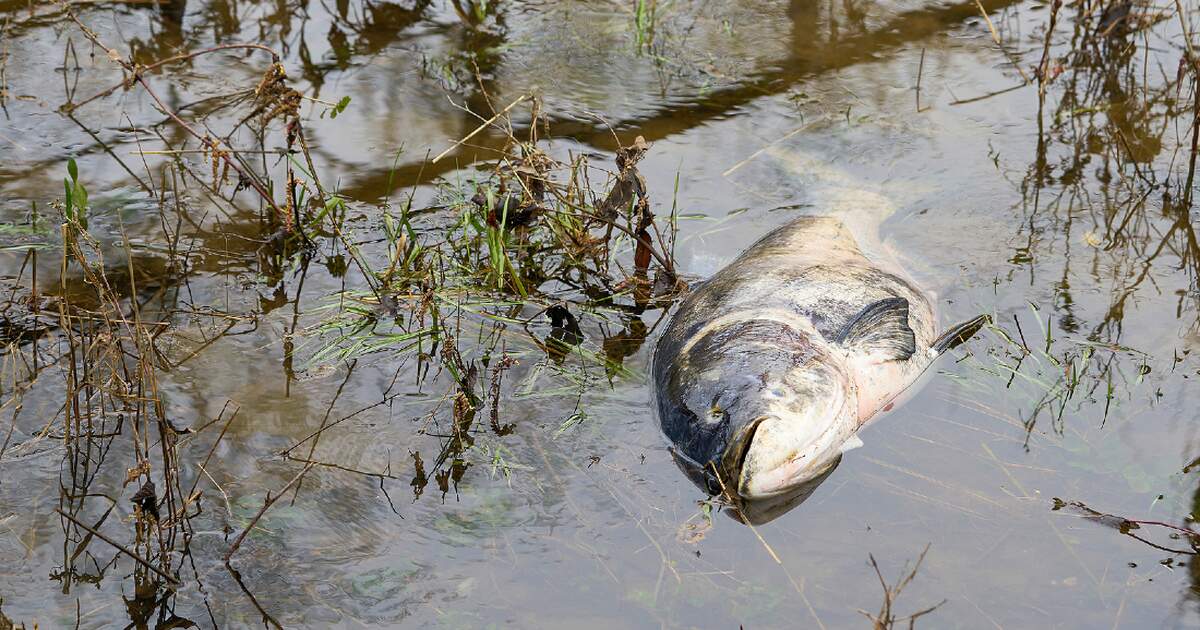Investigations are ongoing and bathing and fishing remain banned after thousands of dead fish were found floating in the Oder River between Germany and Poland. The cause of the mass extinction remains a mystery.
German and Polish authorities are looking for the cause of mass fish poisoning
Volunteers, police officers, firefighters and soldiers have been busy for several days on the German-Polish border removing up to a hundred tons of dead fish from a 500-kilometer stretch of the Oder. The cause of the “catastrophic” mass extinction remains unclear after lab tests found elevated levels of salt and oxygen in the water but no other toxic materials.
“We’re poking around in the dark,” said Brandenburg’s Environment Minister Axel Vogen daily mirror this week and stated that insecticides and pesticides – along with 300 other substances – were being evaluated as possible causes of the mass poisoning. Vogel said the water’s salt and pH levels were high enough to be toxic and that the oxygen concentration in the water was greatly elevated – although given the recent warm weather and low water levels, the opposite should be true.
Both the Polish and German governments suspect the incident was caused by toxic waste spills – possibly involving a company that illegally dumps waste into the river – and Polish police have offered a €210,000 reward for anyone caught can help to find those responsible. However, searches for the exact cause have so far been fruitless and unhelped by communication problems between German and Polish authorities, with Germany accusing Poland of failing to act or issue an alert when the die-off was first noticed almost three weeks ago.
Environmental catastrophe could have dire consequences for the Oder ecosystem
Sascha Maier from the Federation for the Environment and Nature Conservation Germany (BUND). Berlin morning post that not only fish were affected, but also other aquatic animals such as mussels and small vertebrates. There are concerns that the mass extinction could have dire consequences for the region’s entire ecosystem.
Experts are concerned that the yet-unidentified toxin could enter the food chain and wreak havoc as it concentrates in animals that eat the fish. “We saw that other animal species such as eagles or raccoons ate the carcasses,” said Maier Berlin morning post. Karina Dörk, city councilor in the Uckermark, tells the story daily mirror that authorities would need to closely monitor how local bird, otter and raccoon populations are evolving.
Farmers in the region have been advised not to give the water to their sheep and cattle, while environment ministers have decided to deploy floating oil barriers to stop the dead fish drifting further towards the Baltic Sea. As a precaution, the Ministry of the Environment in Mecklenburg-Western Pomerania has called on residents to refrain from fishing and swimming in the Szczecin Lagoon. Locks were closed to try to protect the waters connected to the Oder.
By clicking subscribe, you agree that we may process your information in accordance with our privacy policy. You can find more information on this page.




/cloudfront-us-east-2.images.arcpublishing.com/reuters/BG2XFV333VMFDLGTU3H74QHRXU.jpg)